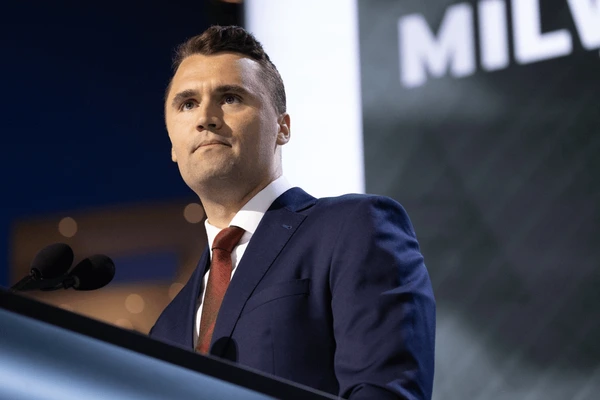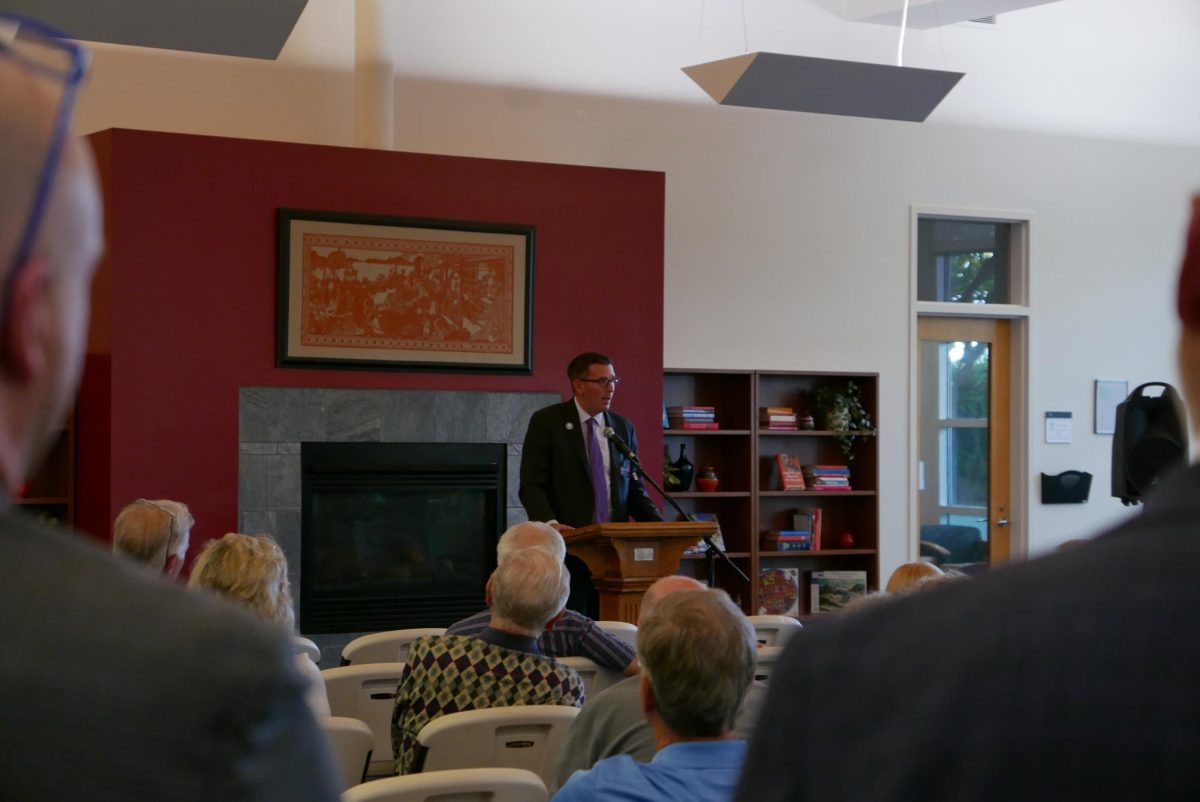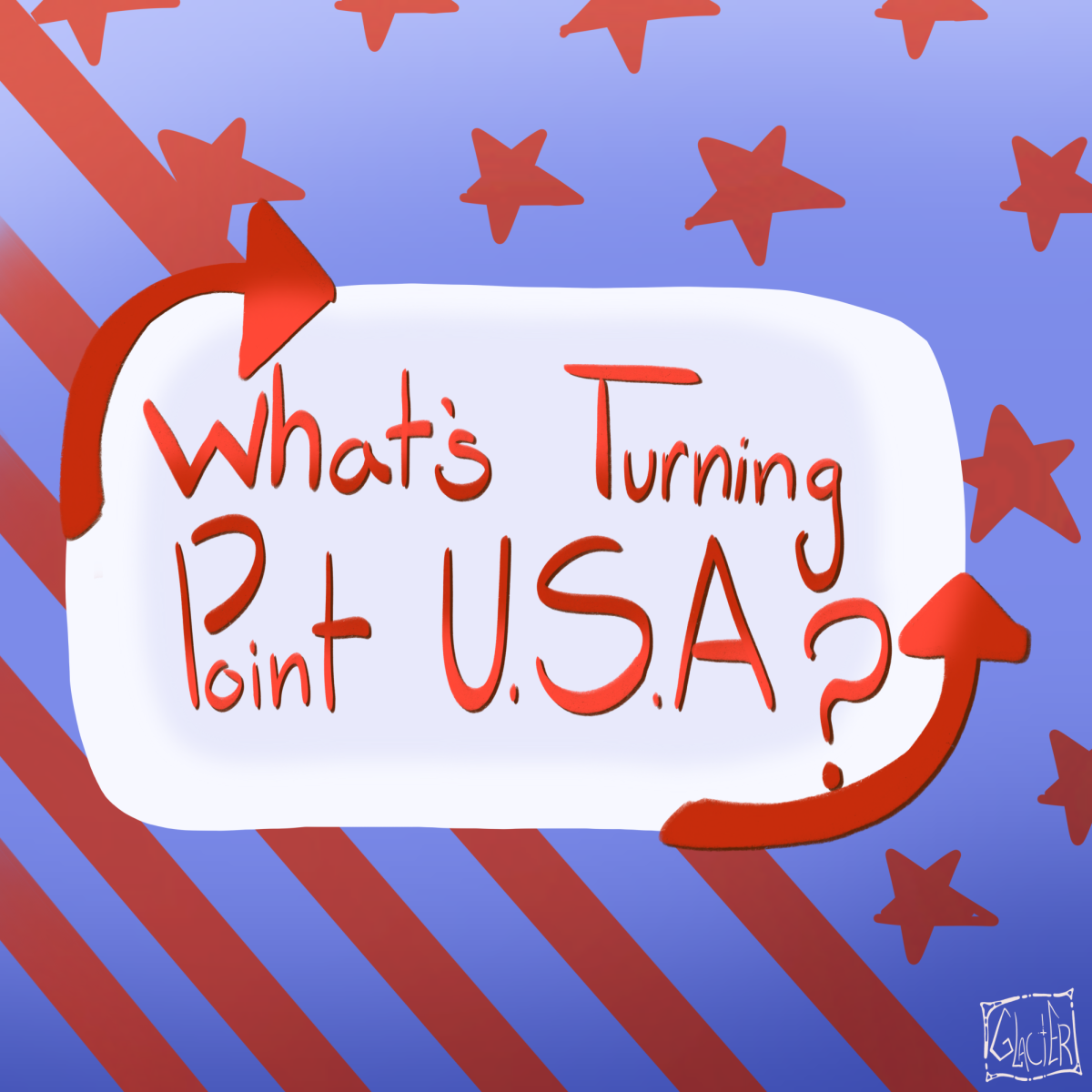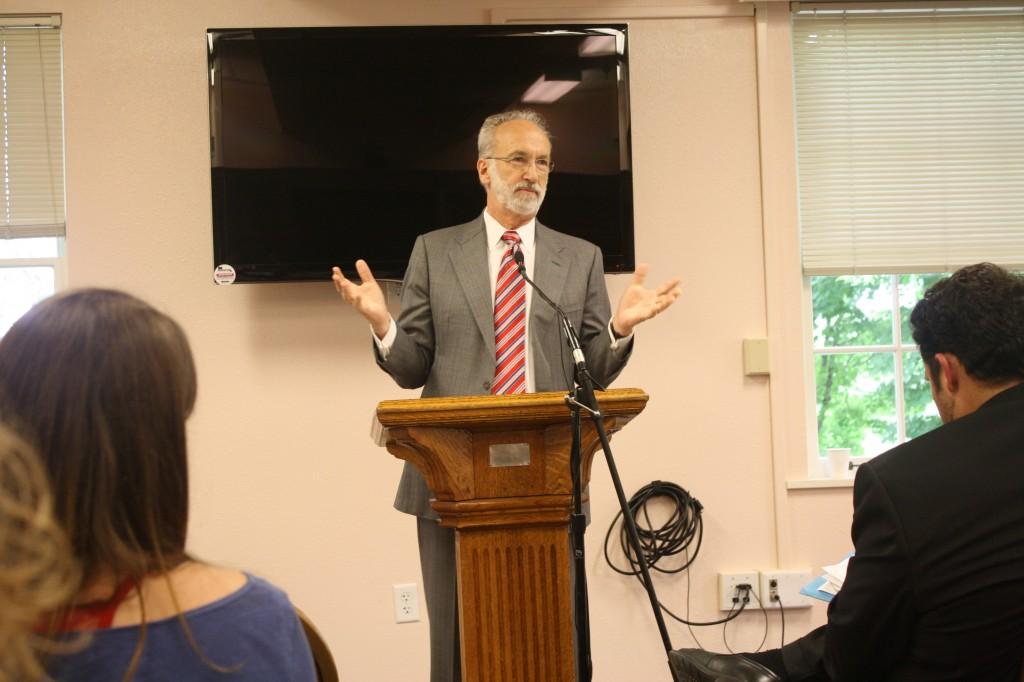
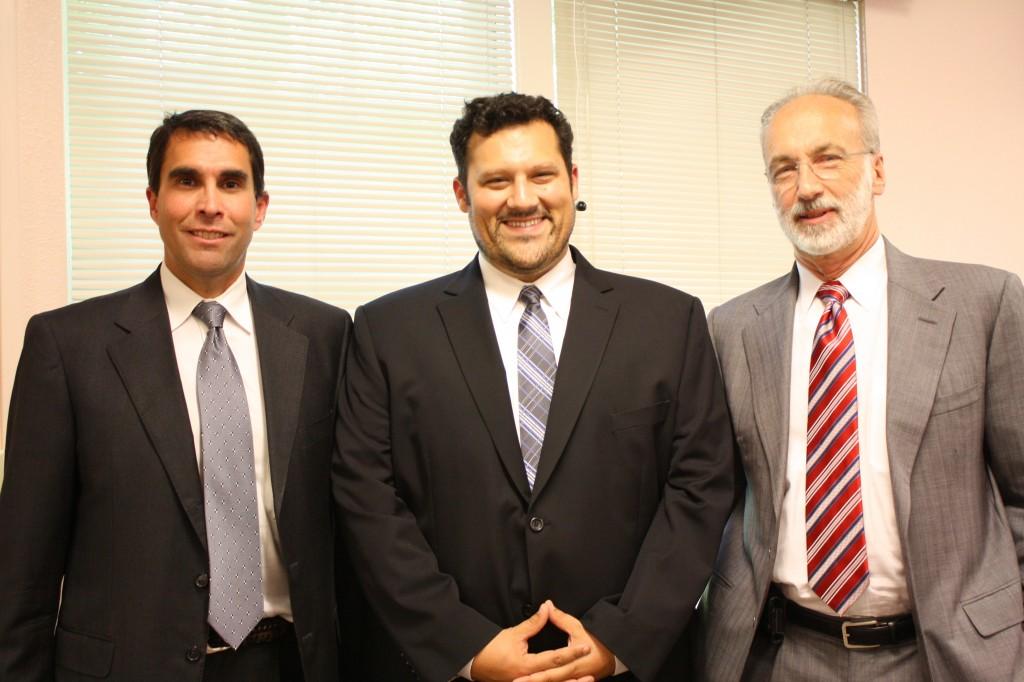
The health care reform has been the talk of many since President Barack Obama held a White House forum March 5, 2009.
The talk was brought to Linfield College by James Huffman, a professor from Lewis & Clark Law School, and Norman Williams, a professor from Willamette University College of Law on Sept. 14.
Nick Buccola, assistant professor of political science, opened for the debate, which was focused on health care reform and the Constitution.
To go along with the topic of the Constitution, the audience received pocket sized copies of the Constitution.
Buccola had expectations of what the audience’s reactions would be.
“I [expect] the audience to come into the room with views of the merits of health care reform as a matter of public policy and to be forced by the topic of the debate to think through the issue through the slightly different lens of constitutional law.”
Winning the coin toss, Huffman spoke on his views of the topic first, clearly stating that he does not agree with the health care reform. In his opening statement, Huffman acknowledged that Williams would have plenty of case laws to support his argument, but he went on to say that the individual mandate is that “health care isn’t going to work without the individual mandate.” The individual mandate that he referred to was explained to be that “health care has to be purchased.” Huffman also stated that this would be unconstitutional.
In contrast, Williams defended health care reform and said that it is constitutional. Williams explained the importance of health care reform.
He said the people who are unable to pay their hospital bills never pay, and their expenses get tacked on to other people’s bills, which makes their insurance higher. He referred to this as “cost shifting.”
“I found it very problematic that 43 million people are unable to pay for their health care and that it is passed on to others. This needs to be fixed in a constitutional manner,” sophomore Andrea Erland said.
“The Federal Court does not sit around to evaluate laws,” William said in reference to the 300 hundred page proposal. He went on to say that it is the work of the three branches of government and none of them are more important than the other.
“I thought Professor Huffman and Professor Williams offered strong arguments on behalf of their respective positions,” Buccola said in an email. “As I indicated at the event, I think Huffman’s position is problematic because it assumes an understanding of liberty that is contestable and I worry that Williams does not provide an adequate account of the role on constitutionalism in the American system of government.”
______________________________________________________________________________________________
Kaylyn Peterson/Sports editor
Kaylyn Peterson can be reached at [email protected].

